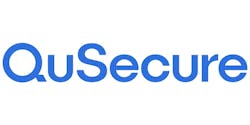QuSecure joins Post-Quantum Cryptography Alliance as Founding Member
SAN MATEO, Calif. — Feb. 6, 2024 — QuSecure, Inc., a leader in post-quantum cryptography (PQC), today announced it has been named as a founding member of the Post-Quantum Cryptography Alliance (PQCA), an open and collaborative initiative to drive the advancement and adoption of post-quantum cryptography.
As a result, QuSecure will lend its unique and demonstrated experience implementing PQC in both enterprises and government agencies to the PQCA’s efforts furthering technological advances to address the looming post-quantum cybersecurity threat.As announced by the Linux Foundation today, the PQCA brings together industry leaders, researchers and developers to address cryptographic security challenges posed by quantum computing through the production of high-assurance software implementations of standardized algorithms, while supporting the continued development and standardization of new post-quantum algorithms.“The PQC Alliance has the laudable goal of bringing together the brightest minds in security and cryptography to deliver open-source, high-assurance post-quantum cryptography,” said Joey Lupo, Product Security Architect at QuSecure. “QuSecure is excited to be a founding member of this effort and continue our mission to engineer a more secure post-quantum future for our customers and the world.”The PQCA will engage in various technical projects to achieve its objectives, including the development of software for evaluating, prototyping, and deploying new post-quantum algorithms. By providing these software implementations, the foundation seeks to facilitate the practical adoption of post-quantum cryptography across different industries.Rebecca Krauthamer, QuSecure Co-Founder and Chief Product Officer, added “QuSecure is proud to be a founding member of the Linux Foundation’s Post-Quantum Cryptography Alliance working alongside the trailblazers of the industry. Our work with the alliance underscores our shared mission of enabling access to quantum-resilient resources where the threat is no longer theoretical but existential. We are excited to collaborate to advance technology ensuring a more secure and resilient digital future.”QuSecure uniquely adds a real-world deployment element to the PQCA, having installed its PQC solution QuProtect in dozens of enterprises and federal network environments. This gives QuSecure a thorough understanding of what organizations are looking for when deploying PQC. For example, QuSecure has gained customer feedback on the value of cryptographic agility and key-strength agility due to seeing how customers use the QuProtect Orchestration Platform to change algorithms and key sizes.
Also, QuSecure can report on the value of being able to install QuProtect in an enterprise without removing or changing existing cryptography. By leaving existing encryption in place, QuSecure has been able to rapidly deploy QuProtect in as little as four hours, which gives QuSecure a rapid learning capability wherein it can share some of the findings with PQCA.QuSecure’s QuProtect software enables organizations to leverage quantum-resilient technology and is currently available to test and deploy, helping to prevent today’s cyberattacks while future-proofing networks and preparing for quantum cyberthreats. It provides quantum-resilient cryptography, anytime, anywhere and on any device including network, cloud, IoT (Internet of Things), edge devices, and satellite communications.
Using QuProtect, organizations can implement PQC on the network without removing existing encryption so installation is fast and risk is minimal. QuProtect software uses an end-to-end quantum-security-as-a-service architecture that addresses the digital ecosystem’s most vulnerable aspects, uniquely combining zero-trust, next-generation post-quantum cryptography, crypto agility, quantum-strength keys, high availability, easy deployment, and active defense into a comprehensive and interoperable cybersecurity suite.
The end-to-end approach is designed to protect the entire information lifecycle as data is communicated, used and stored.
